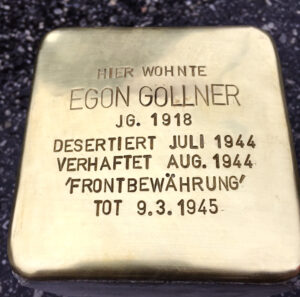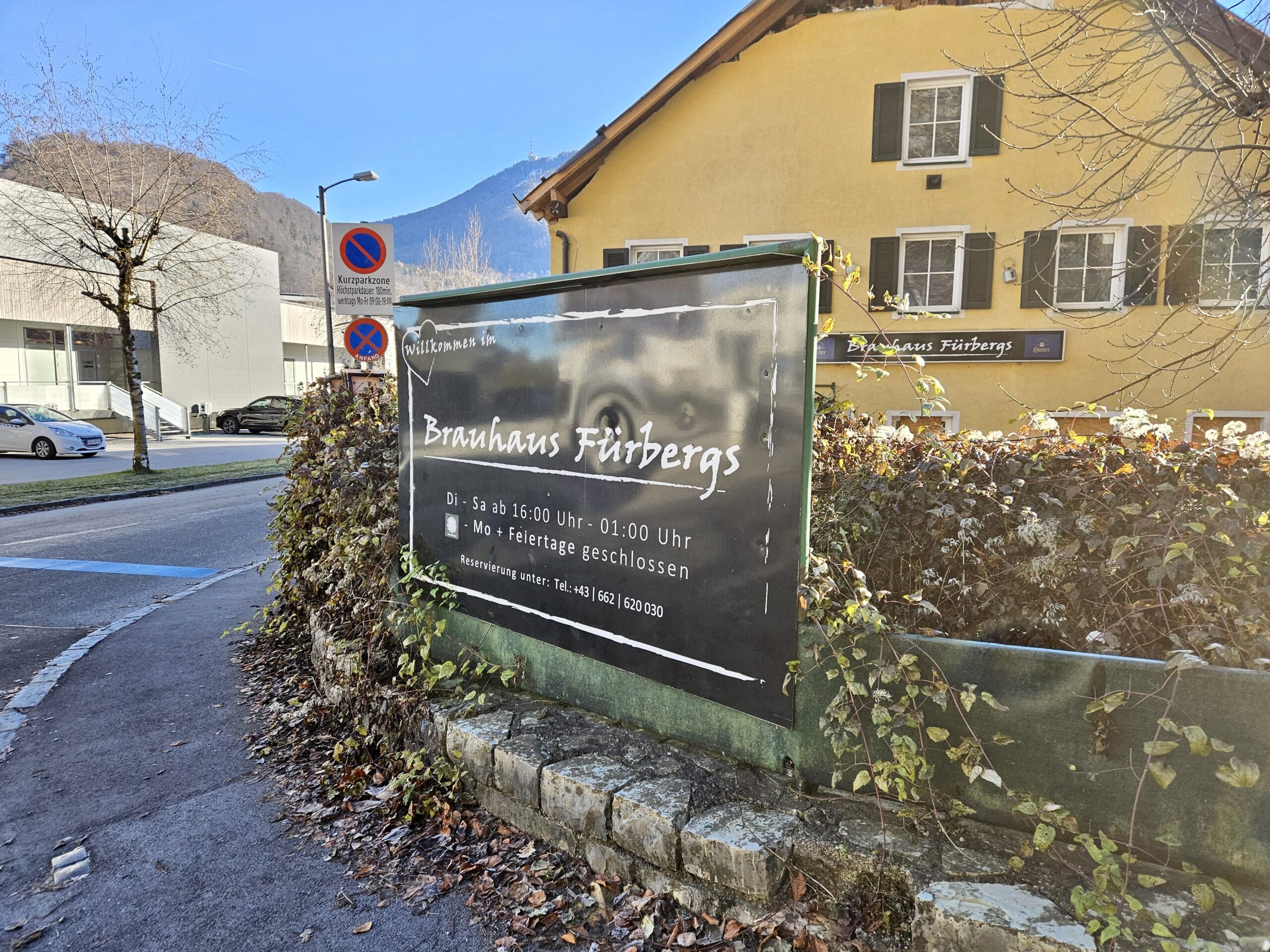Egon GOLLNER was born in Salzburg on April 3, 1918 and was baptized in the Catholic Church. He was the third of six children of the couple Anna and Rudolf Gollner.
The Gollners were a working class family with local citizenship rights in Salzburg and since 1917 they had lived in an outbuilding by the former archiepiscopal pond at 36 Fürbergstraße in the Parsch neighborhood of Salzburg.
Egon GOLLNER trained as a locksmith and at age 20 he had his first job experience working in a Nazi compulsory labor organization when he was drafted into the Reich Labor Service in august 1938. When the Second World War began the next year he was transferred into the German army where he served in the Mountain Construction Battalion of the 18th Military District (Salzburg).
In May 1940 he served on the French Front and in November 1941 he was sent to the Eastern Front in the Soviet Union. By January 1944 he had achieved the rank of corporal, but then he was severely wounded and sent on leave to recover in Salzburg.
In July 1944 he was supposed to return to his unit in »the East«, but according to the criminal charges laid against him in September 1944 he had stayed in Salzburg rather than return to combat: »here he helped his mother take care of his severely ill father (who died on August 24, 1944), and on August 10, 1944 he went to his girlfriend at Neumarkt near Salzburg, where he was arrested on August 18.«
What little we know about conscientious objectors and deserters comes from the records of the courts-martial: Egon GOLLNER wasn’t a member of the Nazi party and he had no previous criminal charges against him.
He must have had a problem with authority and a lack of discipline, though because he was punished nine times during his military service, once for failing to obey an order.
Egon GOLLNER was court-martialed by the 418th Division in Salzburg. Commander and chief judge of the division was Lieutenant General Otto Schönherr (a former officer of the Imperial Austro-Hungarian Army and then of the army of the Austrian Republic). The 418th Division’s court-martial sat in the Justice buildings on the Rudolfsplatz (which the Nazis had renamed after Georg von Schönerer, a leading Austrian German nationalist and virulent Antisemite).
The court-martial prosecutor was a Salzburg attorney named Dr. Julius Poth and the court-martial judge was another Salzburg attorney named Dr. Erich Peyrer-Heimstätt. On September 21, 1944 the 418th Division court-martial sentenced Egon GOLLNER »in the name of the German people« to 15 months imprisonment and loss of rank for »being absent from his unit without permission.«
The calculation behind the supposedly mild sentence is explained in chief judge Otto Schönherr‘s decree of September 24, 1944: »I confirm the verdict. From this sentence 3 weeks under strict arrest should be imposed immediately. The rest of the sentence is suspended until after the war is over to give the condemned person the opportunity to show his mettle before the enemy.«
Army sentences suspending punishments and putting soldiers on probation meant that the soldiers would be assigned to special units assigned to especially dangerous demining and corpse recovery efforts on the »Eastern Front«.
By this time the German »Eastern Front« was no longer in the Soviet Union and had been pushed back into Poland. The details of Egon GOLLNER’s punishment duties in the last months of the war are unclear, but we do know that he didn’t survive. Twenty-six year old Egon GOLLNER died in Roztropice Poland on March 9, 1945. Egon’s siblings and their mother Anna survived the terror years.
Sources
- Court-martial verdict and decree of the chief judge of the 418th Division
- Salzburg city and state archives
- Archiepiscopal archives of Salzburg
Research: Esche Schörghofer
Translation: Stan Nadel
Stumbling Stone
Laid 25.09.2019 at Salzburg, Fürbergstraße 36




